Natural stones such as granite, marble, travertine, limestone, and sandstone, to name a few, are used for countertops, floors (both indoors and outdoors) and bathrooms, among others.
Image | Name | Rating |
|---|---|---|
Most of these stones are porous in nature, some more so than others. If water, oil, grease, and other contaminants are allowed to sit on the stone surface for long, it slowly seeps into the stone and creates ugly stains. It also damages the stone. Hence, most types of stone tiles and slabs require a good quality stone sealer to protect it against staining and damage.
Contrary to popular belief, not all types of stones need to be sealed. The porosity of natural stones varies from dense to highly porous. For example, sedimentary stones such as sandstone and limestone have high levels of porosity. Sandstone can have up to 30% porosity, while limestone can have up to 20% porosity.
The high level of porosity means that the molecules inside are less tightly packed, which makes these types of stones easier to work with and shape. It also means that sandstone and limestone are more vulnerable to water damage and staining.
The Top 10 Natural Stone Sealers for 2022 are:
- Stone Pro Pro Sealer Impregnating Sealer
- The Floor Guys Stone and Grout Sealer
- Tuff Duck Natural Stone Sealer
- Tenax Proseal Stone Sealer
- Stone Care International Granite & Stone Sealer
- Black Diamond Stoneworks Wet Look Stone Sealer
- Weiman Granite Stone Sealer
- Granite Gold Sealer Spray
- Black Diamond Granite Sealer
- Ultra Dry 70 Stone Sealer
Find out which is best for you in our full in-depth reviews below ...

On the other hand, slate is a much harder and significantly less porous natural stone. It has 5% porosity. Water isn’t easily absorbed by slate, if at all. This is the primary reason slate is a popular choice for roofing tiles. It’s also used for flooring.
Granite is one of the hardest natural stones and has just 1% porosity. The hardness makes it a popular flooring material choice, as well as for countertops. While granite is unlikely to absorb water, it’s still vulnerable to oil-based staining substances, especially if the substance remains standing on the granite surface for a long period of time.
Marble lies in between slate and limestone. It’s more porous than slate, but a little less porous than limestone, whereas quartz is practically non-porous.
A good quality stone sealer will protect natural stone surfaces and increase its lifespan.
Table of Contents
- The Top 10 Natural Stone Sealers for 2022 are:
- Top 10 Reviews of Natural Stone Sealers
- Stone Care International Granite & Stone Sealer
- Black Diamond Stoneworks Wet Look Stone Sealer
- Weiman Granite Stone Sealer
- Granite Gold Sealer Spray
- Stone Pro Pro Sealer Impregnating Sealer
- Black Diamond Granite Sealer
- The Floor Guys Stone and Grout Sealer
- Tuff Duck Natural Stone Sealer
- Ultra Dry 70 Stone Sealer
- Tenax Proseal Stone Sealer
- Types of Natural Stone Sealers
- Choosing the Right Stone Sealer
- Key Features of the Best Stone Sealers
- Frequently Asked Questions
- Conclusion
Top 10 Reviews of Natural Stone Sealers
Stone Care International Granite & Stone Sealer
Stone Care International stone sealer is a professional grade sealer that protects all natural stone surfaces from potential damage caused by exposure to water and stain-producing substances. Yet the stone surface is able to breathe and release moisture vapors, which keeps it healthy. It's available in a squeeze bottle, which makes it really easy to apply.
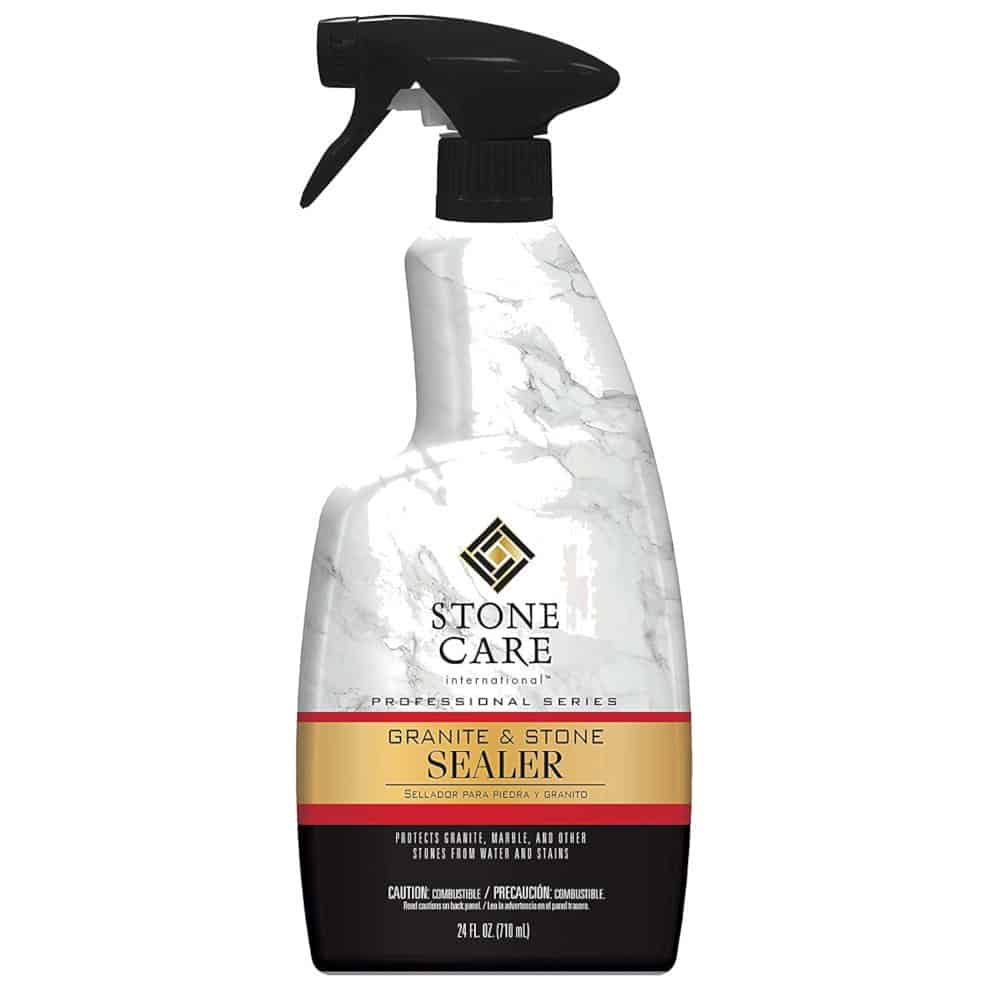
Source: stonecare.com
OUR RATING
Features
Advantages
Drawbacks
Black Diamond Stoneworks Wet Look Stone Sealer
The Black Diamond Wet Look Stone Sealer protects natural stone surfaces and provides a glossy finish to the surfaces. It does not just provide protection against water, but also against corrosive chemical and UV rays. It also slows down the pace of natural wear and tear that the surface is subjected to. This sealer protects and beautifies natural stone surfaces in your house.
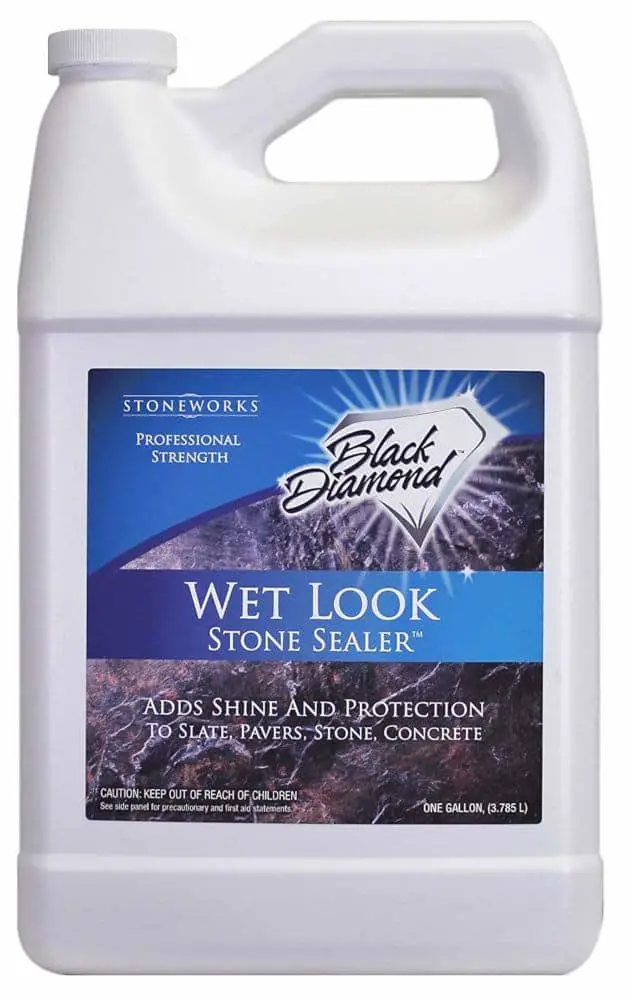
Source: bdstoneworks.com
OUR RATING
Features
Advantages
Drawbacks
Weiman Granite Stone Sealer
The Weiman Stone Sealer will help you enhance the natural look of the stone surface. Natural stones aren't cheap. You must have spent a lot of money installing natural stone tiles or slabs at various places in your house. A good-quality sealer, like Weiman, helps you maintain them and increase their lifespan.
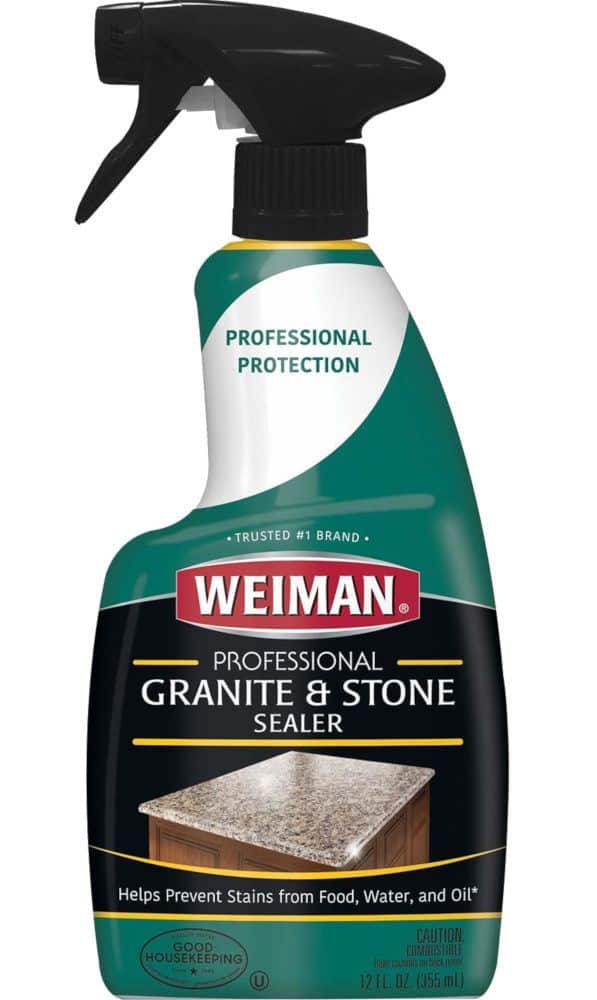
Source: weiman.com
OUR RATING
Features
Advantages
Drawbacks
Granite Gold Sealer Spray
Granite Gold is an easy-to-apply sealer for natural stone surfaces. All you need to do is spray the sealer on the surface and wipe it off right away. This process needs to be repeated 2 to 3 times, with a gap of 20 minutes in between each application, for best results. This sealer is made by a three-generation-old family-owned business that has a long history and a lot of expertise in producing top-quality stone care products.
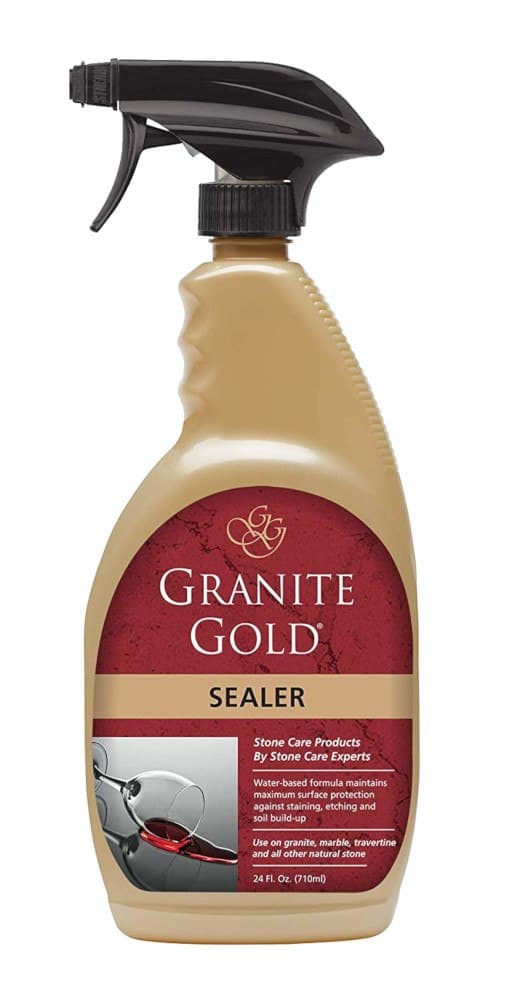
Source: granitegold.com
OUR RATING
Features
Advantages
Drawbacks
Stone Pro Pro Sealer Impregnating Sealer
The Stone Pro Pro Sealer is a professional-quality penetrating sealer for natural stone surfaces. The solvent used in this sealer is equipped with hybrid carrier technology that enables the sealing polymers to reach deep into the stone and provides excellent resistance to staining substances.
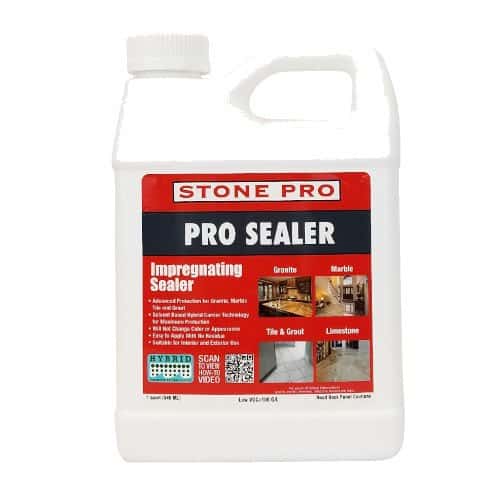
Source: stoneproonline.com
OUR RATING
Features
Advantages
Drawbacks
Black Diamond Granite Sealer
Black Diamond Granite Sealer is one of the best stone sealers when it comes to repelling oil-based substances and water. It provides professional-quality sealing at an affordable price. Your natural stone counters and floors will remain just like new for years to come, with this sealer. It's a high-quality stone sealer, but the process of applying it is really easy.
Even first-time users will face no problems whatsoever in applying it to their favorite natural stone surfaces in the house. Simply spray the sealer on the surface, let it dry and wipe off any excess sealer.
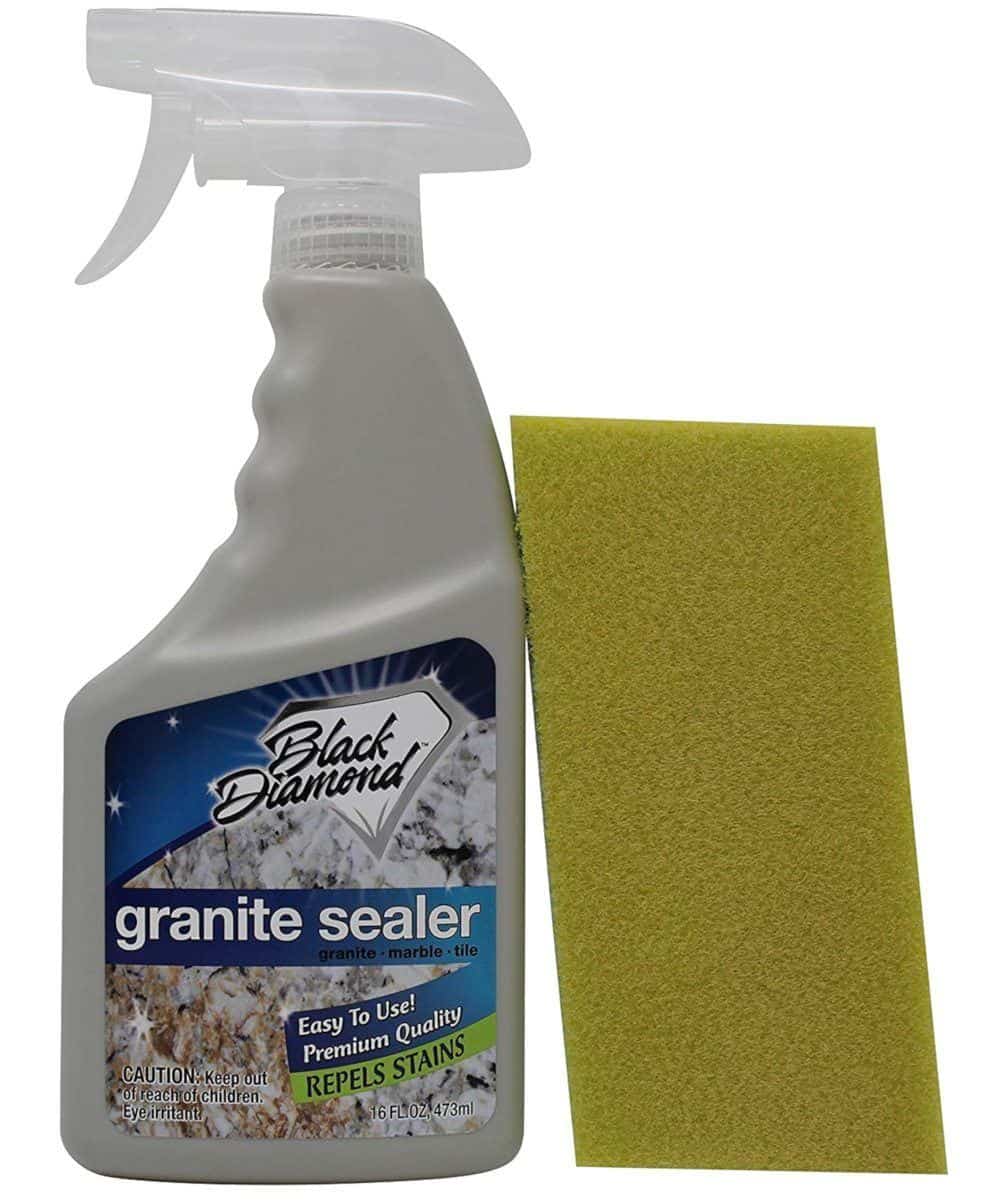
Source: bdstoneworks.com
OUR RATING
Features
Advantages
Drawbacks
The Floor Guys Stone and Grout Sealer
The Floor Guys is a well-known name in the stone care products segment. They have been producing high-quality stone sealers for a number of years now. This stone and grout sealer provides excellent protection against oil-based and water-based stains, as well as wine, juice, and others. Applying the sealer is a simple process. Spread it evenly on the surface and wipe it off after 5 minutes.
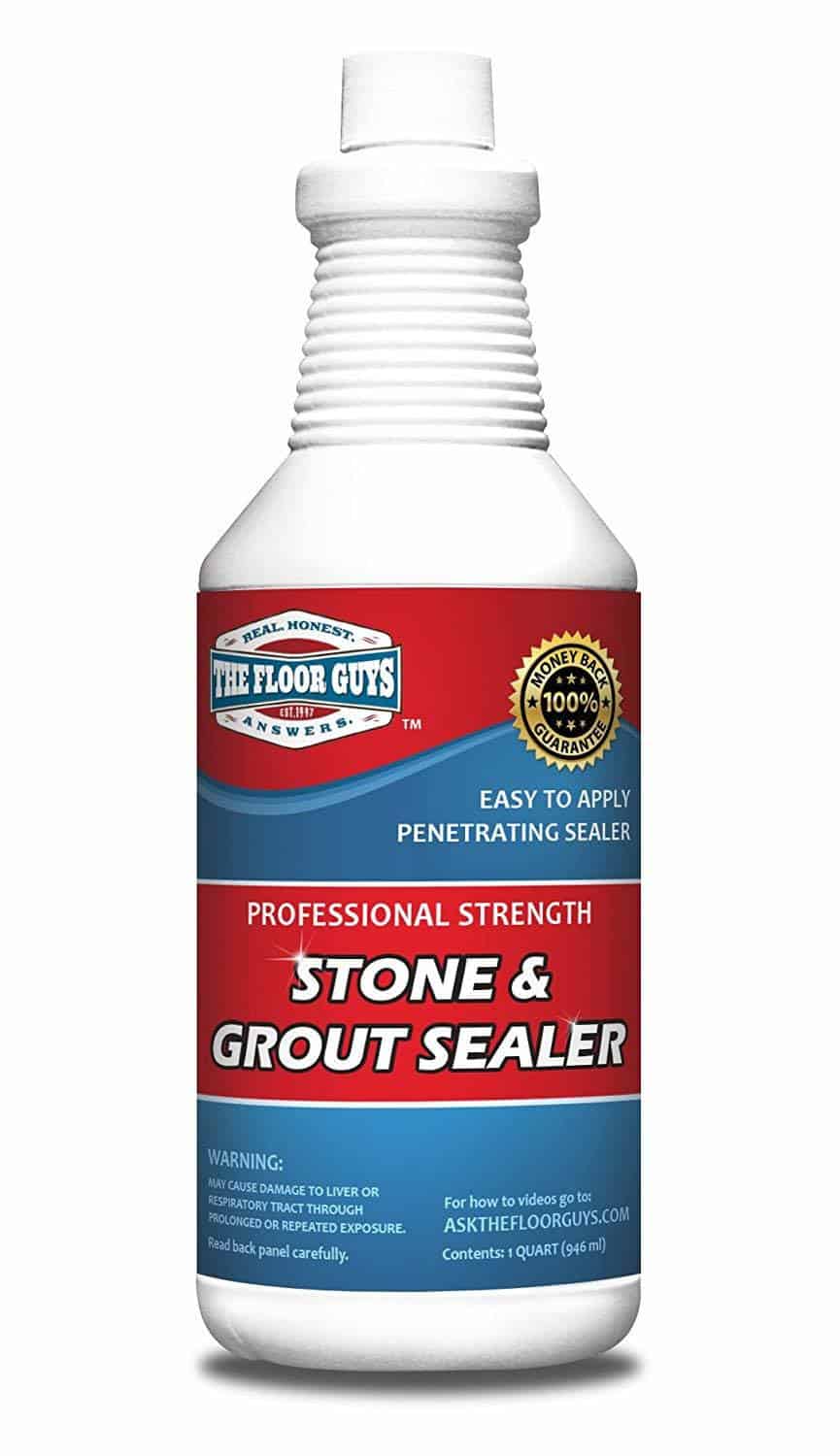
Source: groutinfo.com
OUR RATING
Features
Advantages
Drawbacks
Tuff Duck Natural Stone Sealer
Rocklinite Labs' Tuff Duck Natural Stone Sealer is the preferred choice of stone care professionals in the country. It provides high-quality protection against the toughest stains. Be it oil-based stains or water-based stains, Tuff Duck prevents both from damaging porous natural stone surfaces.
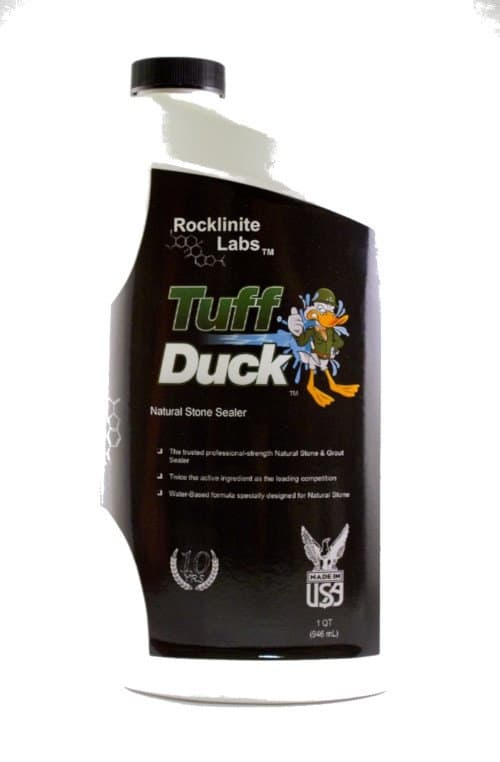
Source: rocklinitelabs.com
OUR RATING
Features
Advantages
Drawbacks
Ultra Dry 70 Stone Sealer
Ultra Dry 70 from Stella Sealants is a premium quality sealer for all types of natural stones, like marble, granite, limestone, travertine, and others. It protects stone surfaces from all forms of stain-producing substances, including oil, grease, food, wine, coffee, water, and more. You can apply it using a roller brush, a paint pad, and even a low-pressure sprayer.
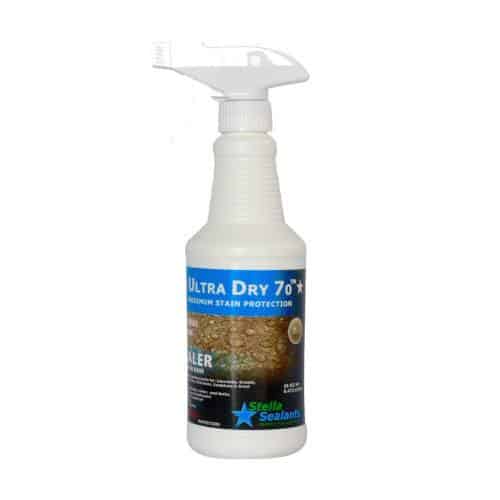
Source: stellasealants.com
OUR RATING
Features
Advantages
Drawbacks
Tenax Proseal Stone Sealer
Tenax Proseal protects stone surfaces against stains caused by oil-based and water-based substances. It's a value-for-money sealer that has been extensively developed by the company. The sealer should be applied on properly cleaned and dried surfaces only, or else the quality of seal may not be up to the mark. When applied in the right way, this sealer can even rejuvenate old and weary stone surfaces.
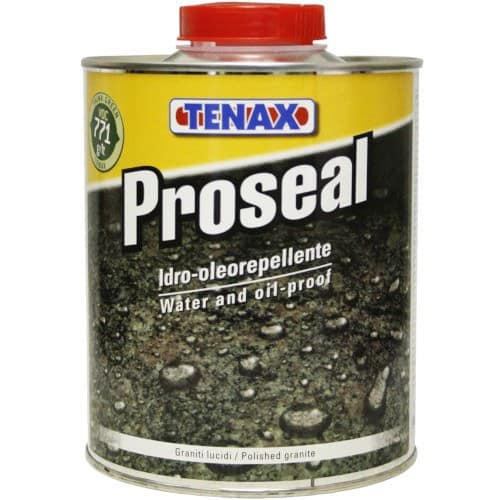
Source: tenax4you.com
OUR RATING
Features
Advantages
Drawbacks
Types of Natural Stone Sealers
Water-Based Stone Sealers
In these types of sealers, water acts as the medium that transports the sealing polymers into the stone. Any stain-producing substance enters the stone via the tiny pores in it. The sealer blocks these pores and prevents the staining substances from seeping in. It’s important that you pick a water-based sealer that blocks the pores but still allows the stone to breathe. If that’s not the case, the water will not evaporate. It will remain trapped inside and lead to mold formation.

Solvent-Based Stone Sealers
As you might have guessed, a chemical solvent transports the sealing polymers into the stone, in place of water. Some solvent-based sealers provide a greater degree of protection against oil-based contaminants than water-based ones, which can be important for kitchen countertops and other stone surfaces that are exposed to oily and greasy substances.
One major issue with solvent-based sealers is that they tend to contain volatile organic compounds (VOCs) that evaporate out of the stone surface in the form of toxic fumes. The fumes also have an unpleasant odor. This makes solvent-based sealers less suitable for application inside the house than water-based sealers.
Both water-based and solvent-based stone sealers are available in the form of penetrating or impregnating sealers. As the name suggests, penetrating sealers are absorbed into the stone and provide comprehensive protection against water damage and stains. Plus, penetrating sealers last long. There’s another type of sealer that’s known as topical sealers. These remain at the surface level and form a thin, transparent protective film or coating.
The problem with topical sealers is that the surface becomes slippery, which can have serious consequences in case of floors. Plus, topical sealers wear out much faster than penetrating sealers, because the sealer is at the surface level. Topical sealers need to be reapplied frequently to maintain the protection, which adds up to a lot of extra expenditure. Penetrating sealers are the best stone sealers.
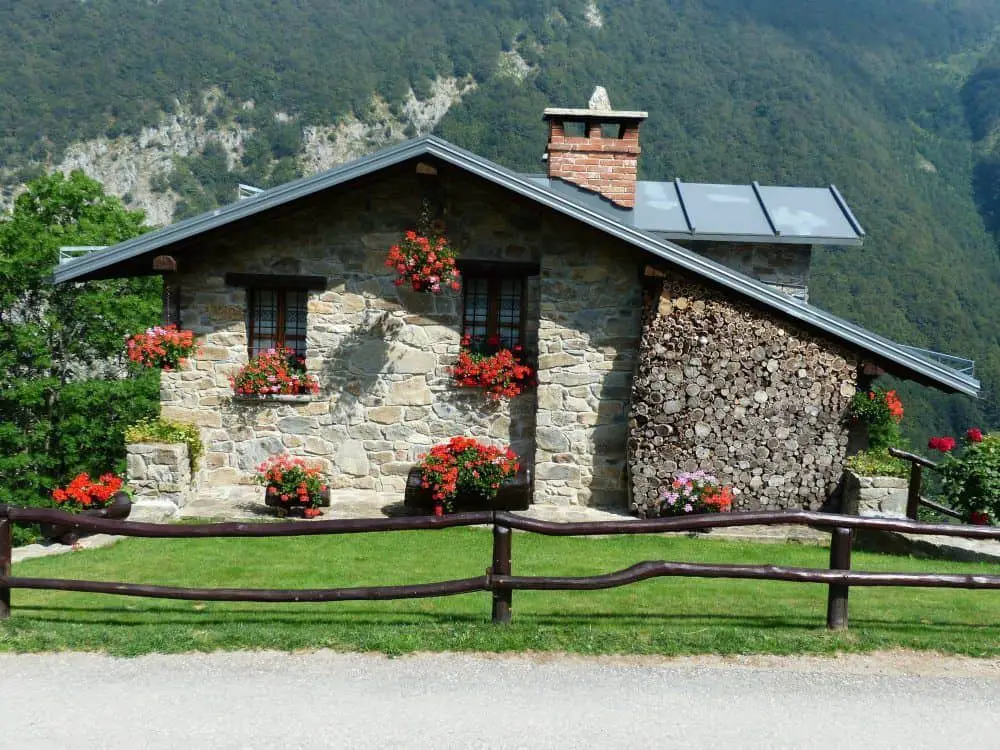
Penetrating Sealers vs Topical Sealers
One of the main reasons topical sealers are still popular is that they cost less than penetrating sealers. Price is an important factor, whether we like it or not. If you need to stick to a budget, then topical sealers might be your best bet. However, do keep in mind that topical sealers need to be reapplied more frequently. It might just make more economic sense to go for a penetrating sealer than a topical sealer. Topical sealers are also much easier to apply than penetrating sealers.
For a first-time user or someone just not used to this, a topical sealer might be a better option. Slip-resistant topical sealers are available as well. Scratches and scuff marks are clearly visible on topical sealers, which can look ugly. You will have to regular buff the surface or re-apply the sealer, which subjects the stone to undue stress and can lead to damage. Low-quality topical sealers are also known to turn yellow. Topical sealers can also prevent the stone from breathing, resulting in moisture getting trapped and eventually spalling.
Penetrating sealers provide a greater degree of protection and last longer. Some penetrating sealers can last up to 5 years. Manufacturers recommend that sealers should be reapplied annually, but that’s primarily a marketing tactic. Penetrating sealers are more expensive and require a little more effort to apply. It might be difficult for a complete novice to apply it properly, though it’s not impossible.
Choosing the Right Stone Sealer
You will have to take into consideration a couple of factors while selecting the right stone sealer.
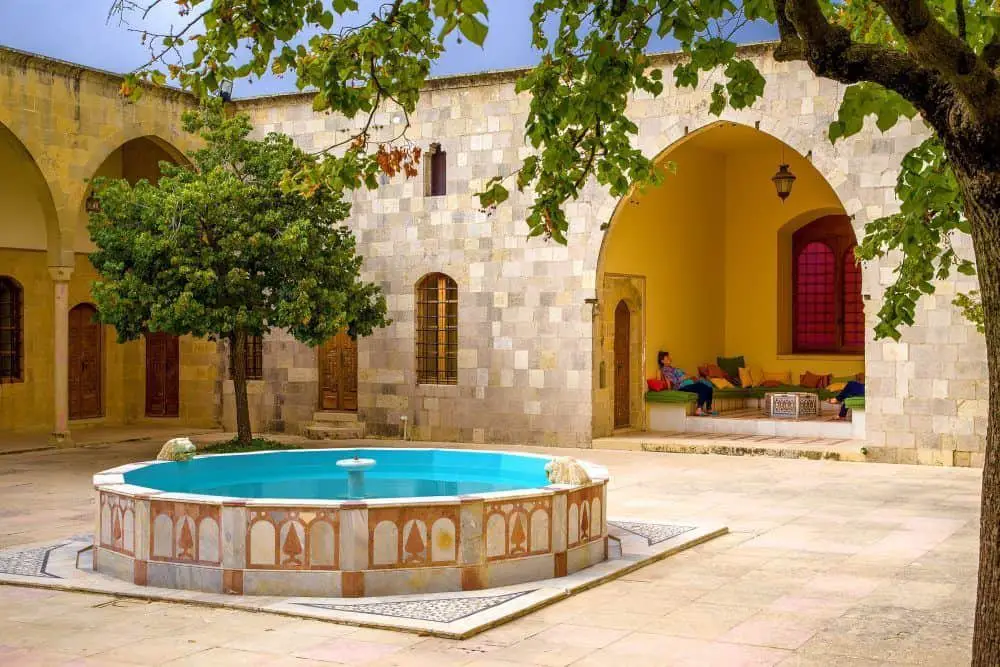
- 1Is the sealer for an indoor stone surface or outdoor stone surface?
Indoor surfaces and outdoor surfaces both have their own set of challenges. Indoor surfaces are more likely to be exposed to oil, wine, coffee, food, acidic substances, etc. Whereas, outdoor surfaces are more likely to be heavy traffic zones and subjected to greater wear and tear. You can’t use a sealer that has toxic elements inside the house, especially on food prep surfaces like kitchen countertops. The same isn’t an issue for outdoor stone surfaces. - 2Do you want a clear finish or an enhanced finish?
A clear finish sealer will ensure that the natural look or appearance of the stone is retained. The sealed surface will look cleaner and brighter, but the natural color of the stone will remain unaltered. On the other hand, an enhanced finish sealer can darken the color of the stone or make it more shiny/glossy or both. These sealers are also known as wet-look sealers. When something is wet, it becomes a couple of shades darker. These sealers have the same effect on stone. The choice is completely a personal preference, but a wet-look sealer doesn’t make sense for marble surfaces or any polished stone for that matter.

Key Features of the Best Stone Sealers
Frequently Asked Questions
Does natural stone need to be sealed?
All natural stone is porous, which means it can absorb liquid, food, and bacteria. As such, it can sustain extensive damage, the durability can be degraded, and so can the physical appearance. To avoid damage and preserve the beauty, function, and durability of the stone, natural stone should be sealed. However, the frequency in which natural stone should be sealed depends on the specific material.
More porous stones, such as limestone and flagstone, should be sealed regularly as they are more prone to scratching, staining, bacteria growth, and etching. Denser stones, such as granite and quartz, do not need to be sealed as often as they are less porous and, therefore, less prone to damage and bacteria growth.
What is the best sealer for natural stone?
The best sealer for natural stone depends on the specific type of stone that is being sealed. Generally, impregnating sealers are considered the best for most types of natural stone. As it penetrates the material, it fills the porous spaces with molecules, and these molecules bond with the pores to repel moisture. Some impregnating sealers can also prevent spalling and efflorescence, and protect from UV rays.
Should I seal flagstone?
Flagstone is considered a porous natural stone. As such, it absorbs moisture and is susceptible to chips, cracks, scratches, and other damage. To avoid damage and preserve the beauty and durability of flagstone, it should be sealed.
A sealer will fill in the pores, thus strengthening it and enabling it to repel water. However, avoid using a sealer that has a glossy finish, as it will compromise the natural appearance of the flagstone. A penetrating acrylic sealer that has a matte finish is recommended for this type of natural stone.
What is stone sealer made of?
There are three main types of stone sealers, and each one is comprised of different ingredients. Topical sealers are usually made of natural wax, polyurethane, and/or acrylic. Penetrating sealers feature fluoro-polymers, siliconates, and siloxanes. Impregnating sealers are made of either silanes or modified silanes.
Do you seal stacked stone?
Like natural stone used in any other application, stacked stone should also be sealed. The material used to create a stacked stone effect is usually very porous and as such, is susceptible to moisture, chipping, cracking, and other forms of damage. Applying a sealer will help to strengthen the stone, thereby improving its durability and maintaining its appearance.
An impregnating sealer, a type of penetrating sealer, is recommended for stacked stone, as it fully penetrates through the material and bonds the pores, creating a water-tight barrier and improves its overall durability.
Conclusion
This buying guide will provide you all the pointers you need to select the best stone sealer for marble surfaces at your home or business. However, do keep in mind that even the best stone sealer will have its own set of limitations. It will provide a degree of protection, but in certain situations, no stone sealer will be able to help. This is particularly true for certain types of natural stones. Acid-sensitive stones like marble, limestone, and travertine will get etched if acidic substances are spilled on it or if an acidic-cleaning product is used on it.
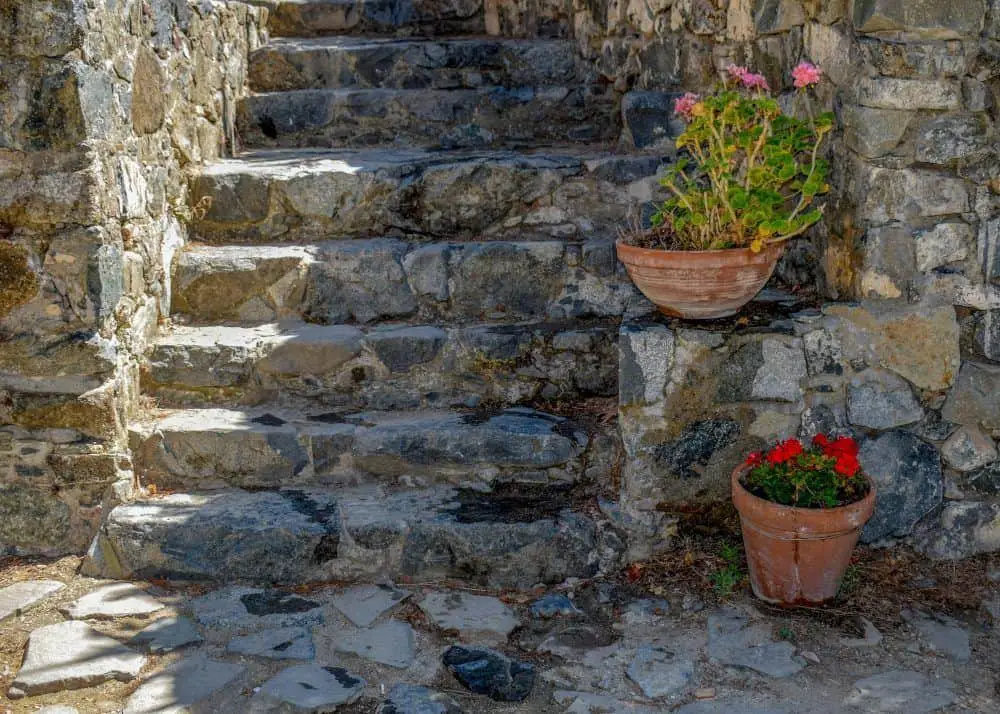
All types of citrus food items are acidic. The best stone sealer might be able to reduce the effect or provide you with a little time to clean the spill before the etching sets in, but that’s about it. An easy way to differentiate between etching and staining is that etching lightens the color or shade of the stone, while staining darkens it.
There are a couple of things you need to keep in while applying a sealer. Firstly, irrespective of how much research you have done about the sealer you have picked, you should test it in a nondescript corner of the stone surface before applying it to the entire surface. The test will inform you about any unexpected reactions. This is especially important while applying a sealer for the first time on a stone surface.
You should conduct a test even if you have previously sealed the surface with one brand of sealer and you are now going to use a different brand. Secondly, thoroughly clean the stone surface before applying the sealer. Dirt, grime or any other form of contaminant on the stone surface might react badly with the sealer and have an undesired effect.
Resources:
Hunker
Corridor Kitchens
Stone World
